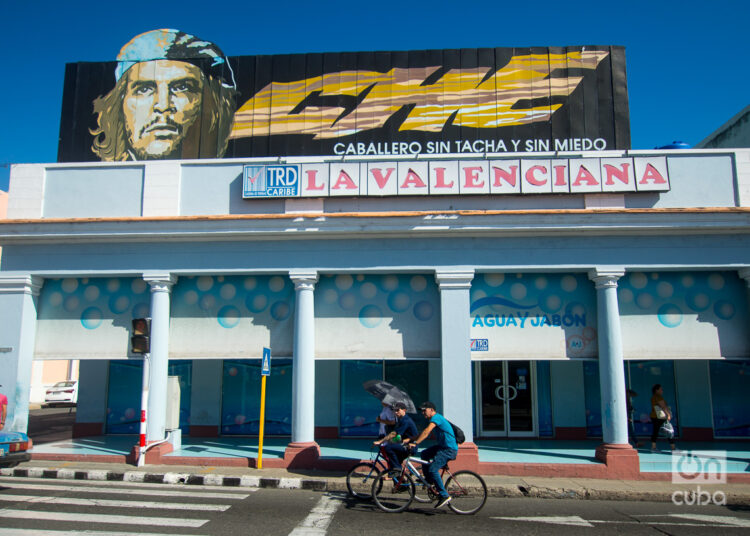A few months ago it was announced that there would be modifications to Decree-Law 46/2021 “On micro, small and medium-sized enterprises.” The objective of the changes is to regulate distortions and adapt the operation of this economic actor, according to the deficiencies detected since the entry into force of the document on August 19, 2021.
The new regulations have not yet been promulgated, but in the National Assembly of December 2023, reported by Cubadebate, Prime Minister Manuel Marrero advanced concepts to be taken into account in future regulations.
First, the need to “promote the constitution of joint ventures between state entities and private MSMEs” was mentioned. The aforementioned decree did not include the possibility of establishing joint ventures between private MSMEs and foreign companies, as stated in the current Decree-Law, whose complementary regulations have not been approved. This aspect, highly demanded by national MSMEs and foreign businesspeople, for some reason, could completely change the state of foreign investment in the country.
Next, the need to “approve the legal regulation that establishes the principles for relations between state and non-state actors” was noted, outlining some aspects of the future regulation, when the following comments from the premier were added:
“How is it possible for a state enterprise to rent its workshops, instead of chaining itself? That is giving up your productive capacity. What future do these workers have?”
“We propose chaining, but true productive chaining. ‘I have the workshop, the mechanics, but not the parts. And you, from the MSME, have financing to fix machinery and get things going as a whole, distribute benefits, rescue underutilized capacities,” Marrero said at the aforementioned meeting.
It seems naive to me to think that private MSMEs will be eager to provide their financing and resources so that the state enterprise produces and manages and the profits are shared between the two. Neither has foreign capital.
This idea is based on the erroneous concept that state enterprises only need financing.
In the business world, it is often said that entrepreneurs face many problems, including financing; but of those problems, money is usually the least.
After establishing an enterprise and providing initial capital, if an entrepreneur has a stable and promising business, a demanded product, a market, income generation, and good profits, financing usually appears abroad without major difficulties.
But financing an activity in Cuba in which workers are not properly stimulated, in which there are multiple regulations to set capped prices, to obtain profits, difficulties of all kinds to continue paying suppliers and have the financial resources of the enterprise, and many other obstacles…who will want to continue investing resources in business plans that are not very easy to fulfill?
The existence of factories, workshops, and mechanics does not guarantee the success of a venture, just because someone provides the parts and financing.
The current situation of many state enterprises (losses, low profitability, and low productivity, among others) is not only because they do not have fresh resources but also because they are incapable of generating new profits to maintain the business uninterruptedly, repay financing, pay their current obligations and generate value. Or, in other cases, they are capable of generating them, but later a higher body takes them away from them, or does not allow enterprises to dispose of them. We have seen it happen when, for example, an enterprise that has profits sees them redistributed because another of the group of which it is a part has losses.
Forms of non-state management (FGNE) seek a solution to problems, not always in a conventional way. An example is the conversion of national currency into foreign currency and its return to external financiers and suppliers. A state enterprise, with its internal controls and standards, could hardly adapt to these work methods, unwanted and not recommended, but imposed by reality. And without these unorthodox solutions, it is currently very difficult for a business to survive.
And business continuity? It is often forgotten — and the same thing happens with foreign investment — that initially there may be raw materials and resources for a first production cycle, but for the following cycles to work, the resources obtained from production must be reinvested, and not continue requesting from third parties more resources and parts. Who will guarantee that the national currency obtained from the sales made by the private enterprise to the state enterprise can be exchanged for foreign currency, both to continue production and to return the initial financing obtained from the MSME, which needs foreign currency to continue growing?
It would be possible to forget these plans and let reality dictate the final result. But in Marrero’s phrases mentioned at the beginning of the text, an orientation is implicit: that of not renting the workshops of the state enterprise, often unused, to MSMEs to make them available for something more beneficial. It would be perfect if the state enterprise actually used those spaces to achieve what is most beneficial for it.
What if it is not achieved? Will state enterprises be prohibited from renting their idle premises, in search of “true chaining”? This could immediately have the following consequences:
- It will be difficult for many state enterprises to obtain greater income, because they cannot produce in idle premises, nor can they rent them.
- Many workers in state enterprises are hired by MSMEs that rent the premises of these enterprises. If MSMEs cannot rent these premises, those workers would have less of a future.
- Society demands that MSMEs produce. Those that sell may have garages, portals, and other spaces in private homes. But those who want to produce (not only on a small scale) will hardly be able to do so in private homes. If they cannot rent premises and workshops to state enterprises, they will not be able to engage in production; since they would have to find private land, manage expensive authorizations, and build their own civil works to locate their productive workshops.
It should not be forgotten that until very recently, factories, workshops, and private production were not permitted. Who would the state enterprise rent the premises to then?
I do not believe that forcing cooperative production is the best way to achieve success, nor is the mixed structure between the state enterprise and the FGNE, because we return to the vicious circle: investing in a state enterprise often ends in loss of investment.
In recent times it has been mentioned that there is no desire to prohibit the activity of MSMEs, which would be a setback, but rather “to continue advancing in their direction and alignment with strategic objectives,” according to Marrero. It is very good that this is recognized, without losing the vision that economic activities many times cease, not because someone has prohibited them, but because, given the context, it is unfeasible to continue them.
Let’s hope that the expected new regulations on MSMEs do not lead to this outcome.










